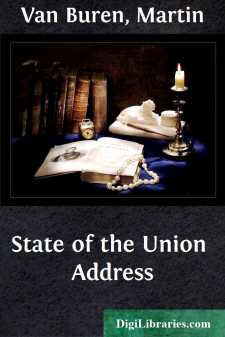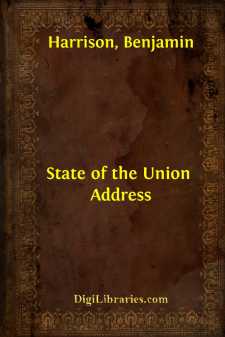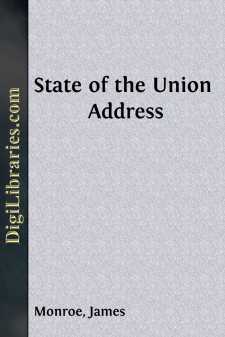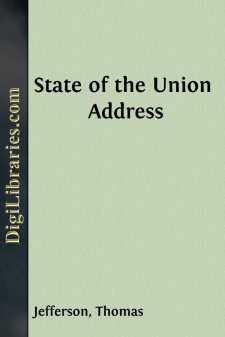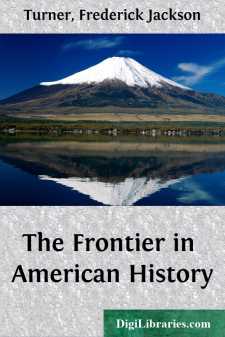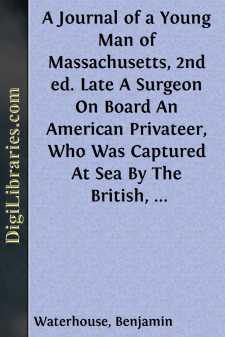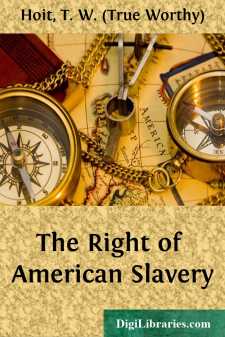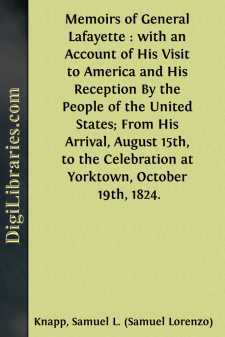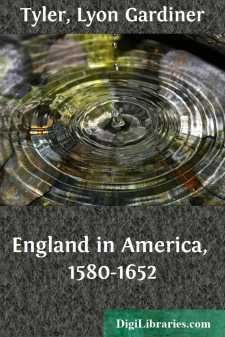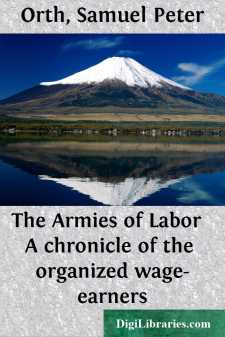History
- Africa 30
- Americas (North Central South West Indies) 50
- Ancient 68
- Asia 58
- Australia & New Zealand 8
- Canada 41
- Caribbean & West Indies 1
- Civilization 20
- Eastern Europe 12
- Europe 310
- Expeditions & Discoveries 60
- General 77
- Historical Geography 1
- Jewish 9
- Latin America 3
- Medieval 8
- Middle East 13
- Military 248
- Revolutionary 8
- Study & Teaching 5
- United States
- Western Europe 56
- World 13
United States Books
Sort by:
by:
Martin Van Buren
Fellow-Citizens of the Senate and House of Representatives: We have reason to renew the expression of our devout gratitude to the Giver of All Good for His benign protection. Our country presents on every side the evidences of that continued favor under whose auspices it, has gradually risen from a few feeble and dependent colonies to a prosperous and powerful confederacy. We are blessed with domestic...
more...
To the Senate and House of Representatives: There are few transactions in the administration of the Government that are even temporarily held in the confidence of those charged with the conduct of the public business. Every step taken is under the observation of an intelligent and watchful people. The state of the Union is known from day to day, and suggestions as to needed legislation find an earlier...
more...
by:
James Monroe
Fellow-Citizens of the Senate and House of Representatives: At no period of our political existence had we so much cause to felicitate ourselves at the prosperous and happy condition of our country. The abundant fruits of the earth have filled it with plenty. An extensive and profitable commerce has greatly augmented our revenue. The public credit has attained an extraordinary elevation. Our...
more...
by:
Thomas Jefferson
Fellow Citizens of the Senate and House of Representatives: It is a circumstance of sincere gratification to me that on meeting the great council of our nation I am able to announce to them on grounds of reasonable certainty that the wars and troubles which have for so many years afflicted our sister nations have at length come to an end, and that the communications of peace and commerce are once more...
more...
PREFACE In republishing these essays in collected form, it has seemed best to issue them as they were originally printed, with the exception of a few slight corrections of slips in the text and with the omission of occasional duplication of language in the different essays. A considerable part of whatever value they may possess arises from the fact that they are commentaries in different periods on the...
more...
District Clerk's Office. (L. S.)Be it remembered, that on the sixth day of March, A. D. 1816, and in the fortieth year of the Independence of the United States of America, Rowe & Hooper, of the said District have deposited in this Office, the title of a book, the right whereof they claim as Proprietors, in the words following, to wit: "A Journal of a Young Man of Massachusetts, late a...
more...
THE RIGHT OF SLAVERY. INTRODUCTION. African Slavery is, at present, the subject of all-absorbing interest to the American mind; for, our people, almost intoxicated with their own freedom, seem unsatisfied with those manifold blessings acquired by the labors of their sires; and while they are conscious of not excelling them in wisdom, virtue, or valor, they are becoming ideal, and seem willing to...
more...
MEMOIRS OF GENERAL LAFAYETTE * * * * * Among the many great men who have distinguished themselves in the present age, for their attachment and devotion to the cause of civil liberty, general LAFAYETTE is one of the most eminent. During the last fifty years, great changes have been made or attempted in human governments, highly favourable to political freedom and the rights of mankind. In some cases,...
more...
CHAPTER I GENESIS OF ENGLISH COLONIZATION(1492-1579)Up to the last third of the sixteenth century American history was the history of Spanish conquest, settlement, and exploration. Except for the feeble Portuguese settlements in Brazil and at the mouth of the La Plata, from Florida and the Gulf of Mexico, around the eastern and western coasts of South America, and northward to the Gulf of California,...
more...
CHAPTER I. THE BACKGROUND Three momentous things symbolize the era that begins its cycle with the memorable year of 1776: the Declaration of Independence, the steam engine, and Adam Smith's book, "The Wealth of Nations." The Declaration gave birth to a new nation, whose millions of acres of free land were to shift the economic equilibrium of the world; the engine multiplied man's...
more...


